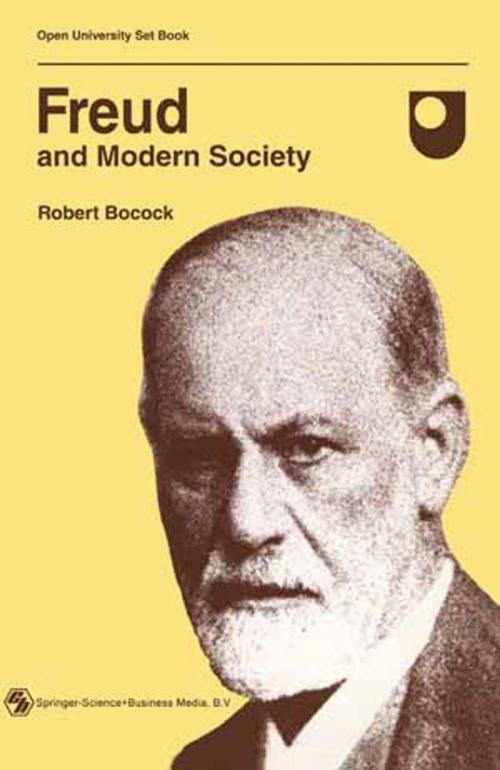Freud and Modern Society
An outline and analysis of Freud’s sociology
Nonfiction, Health & Well Being, Psychology, Psychoanalysis, Social & Cultural Studies, Social Science, Sociology| Author: | ISBN: | 9789401573641 | |
| Publisher: | Springer Netherlands | Publication: | April 17, 2013 |
| Imprint: | Springer | Language: | English |
| Author: | |
| ISBN: | 9789401573641 |
| Publisher: | Springer Netherlands |
| Publication: | April 17, 2013 |
| Imprint: | Springer |
| Language: | English |
by Ronald Fletcher To devote a volume to Freud in a series on 'The Making of Sociology' might seem, to some readers, very strange. Freud, they might argue, was not only (and very explicitly) a psychologist, but also (and equally explicitly) a clinical psychologist, whose most immediate preoccupation was that of trying to cure the mental illnesses of his patients. Furthermore, he was a psychologist who insisted on relating his theories as closely as possible to biological and physiological facts. All this, of course, is true. But to adopt this view as one which distinctly marks Freud off from sociology is a basic mistake, and one which shows how sadly subjects which were once seen as being essentially interrelated have been forced into false separation by the current vogue of'specialization'-necessary and correct when it is soundly conceived, but intellectually disastrous when it is not. It is worthwhile to recall that all the major thinkers who contributed to the making of sociology-from Comte and Spencer to Ward, Giddings, Tonnies, Durkheim, Hobhouse, Weber, Simmel, Pareto (this could be a very long list I)-were, in fact, convinced about the close relationships between biology, psychology and sociology. The same is true of all the major anthropologists. The simple truth is that all these men were critically and creatively participating in the revolution which was taking place in man's approach to his knowledge of nature, and of his own nature and place within it.
by Ronald Fletcher To devote a volume to Freud in a series on 'The Making of Sociology' might seem, to some readers, very strange. Freud, they might argue, was not only (and very explicitly) a psychologist, but also (and equally explicitly) a clinical psychologist, whose most immediate preoccupation was that of trying to cure the mental illnesses of his patients. Furthermore, he was a psychologist who insisted on relating his theories as closely as possible to biological and physiological facts. All this, of course, is true. But to adopt this view as one which distinctly marks Freud off from sociology is a basic mistake, and one which shows how sadly subjects which were once seen as being essentially interrelated have been forced into false separation by the current vogue of'specialization'-necessary and correct when it is soundly conceived, but intellectually disastrous when it is not. It is worthwhile to recall that all the major thinkers who contributed to the making of sociology-from Comte and Spencer to Ward, Giddings, Tonnies, Durkheim, Hobhouse, Weber, Simmel, Pareto (this could be a very long list I)-were, in fact, convinced about the close relationships between biology, psychology and sociology. The same is true of all the major anthropologists. The simple truth is that all these men were critically and creatively participating in the revolution which was taking place in man's approach to his knowledge of nature, and of his own nature and place within it.















